Favorite quotes from 2020 so far
Last year I had just one post for all my collected quotes of the year, as I didn't have too many of them. This year the list is starting to become really long, so here are some I've collected so far. I don't require zen-like insightfulness or beautiful writing, it's enough if I just learned something new.
Online
It’s kind of like curling. Our role now is to be the people polishing the ice in front of the stone, to remove friction. We’re not trying to change the trajectory.
This is from an interview with Gumroad founder Sahil Lavingia, about how the nature of building something changes once you have traction.
“Here’s the thing though, it still led to an increase to traffic on the page,” Scher said, referring to the clip-art style graphic. “We were being rewarded for adding images, regardless of whether or not the images were crappy.”
This from an article about the bizarre art of WikiHow. They found a practical way for ranking better on Google: add illustrations. Explains why they insist on illustrating absolutely everything.

There's even a game about guessing WikiHow article titles based on the illustration.
I noticed how I'd get distracted for N minutes if I read something on the internet when I needed to wait for two minutes, so I made sure to keep a queue of useful work to fill dead time
A quote from this highly controversial article about how being relatively good at something often isn't as hard as you might think. This quote isn't about that though, but a sort of sidenote lifehack the author has found to help with those dangerous moments of lull when something stops your flow briefly.
I’ve learned that there are people in this world who derive great pleasure from hurting or threatening others.
Tim Ferriss might not be famous in the way a movie star is, but is apparently famous enough that he has to deal with crazy/obsessive people, and wrote a really interesting article about it.
Naval
This guy needs his own category, as including his quotes anywhere else feels a bit like cheating.
All humans are broad. We're all multivariate, but we get summarized in pithy ways in our lives, and at some deep level we know that's not true. Every human basically is capable of every experience and every thought.
This quote is from Joe Rogan's interview of Naval. It's about how people tend to summarize others in easily digestible soundbites, but actually no-one is that straightforward. You could summarize @naval as someone who is an expert at being quotable.
Memento mori—“remember that you have to die.” All of this will go to nothing. Remember before you were born? Just like that.
Another Naval quote on why you don't have to worry about death.
Don’t do things that you know are morally wrong. Not because someone is watching, but because you are. Self-esteem is just the reputation that you have with yourself. You’ll always know.
Naval again on why despite everything being essentially meaningless, you still shouldn't be evil.
Books
On the Edge: The Spectacular Rise and Fall of Commodore
This book is the store of the computer company Commodore, famous in the 80s for its Vic-20 and C64 computers, which did especially well in Europe.
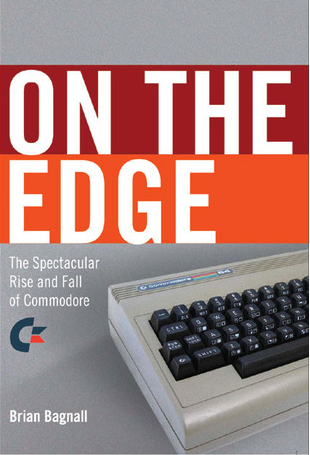
Tramiel’s ruthless style earned him a reputation akin to a high-yield nuclear weapon in a business suit.
Just a fun visual image.
His motto was, ‘Business is war’. You didn’t win by competing with your competitors or outdoing them; you won by destroying your competitors and putting them out of business.
Later on the book describes many situations where the leader of Commodore does just this.
Steve Jobs realized Peddle was no longer any use to him and the friendship ended—a characteristic often noted by people who have worked with Jobs. “We parted ways after I left Apple,” says Peddle. “We never looked back, either one of us at that point. He wouldn’t give me the time of day now because Steve is Steve.
Peddle refers to Chuck Peddle, the designer of the 6502 chip. Seems Jobs may have been quite purpose-driven with his friendships.
Every month, they had an ad asking the question, ‘Why is Apple number one in the world of Personal Computers?’ And the answer of course was because they were number three, behind Radio Shack and Commodore. They just lied.”
I'm sure there is some narrow definition of "number one" that could make it technically true. Here's another:
In December 1978, Apple computer ads began calling the Apple II, “The World’s Best Selling Personal Computer.” Despite the lofty claim, both the PET and TRS-80 outsold the Apple II.
Now this one is a little bit harder to explain!
Apple hired an engineer to redesign Wozniak’s motherboard. “There was a guy who was hired at Apple to redesign the Apple II and make it real engineering without offending Woz,” explains Peddle. “He basically went through and redesigned the product. Woz was a technician—he wasn’t a real engineer.”
This quote really surprised me, because all I had ever heard was that Woz is an engineering god.
Mike Markkula and Regis McKenna created the Apple legend in a very careful, controlled, PR way.
Ah, maybe that's why.
Where did computers fit in Peddle’s hierarchy? “Right about sex,” he says. “Once you are hooked on computers, you will get back to using your computer whether you like it or not.”
Luckily I like it though.
Antifragile: Things That Gain from Disorder
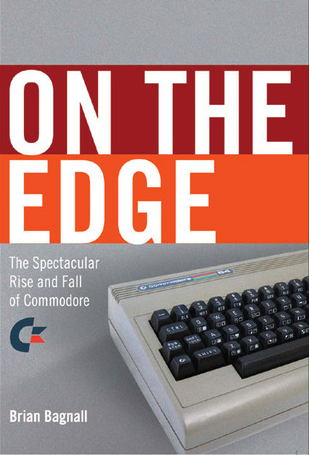
Haven't decided how much I like or agree with this book yet, but it gives much to think about.
An idea does not survive because it is better than the competition, but rather because the person who holds it has survived!
Richard Dawkins came up with the word "meme" in "The Selfish Gene". That book described how widespread ideas are that way because they spread rapidly. This adds to that by saying that an idea won't spread as well if the person infected by the idea dies because of it, so an idea isn't just an abstract thing to spread but functional as well.
People with too much smoke and complicated tricks and methods in their brains start missing elementary, very elementary things.
I think engineers have a weakness for this in particular. Thinking too hard when a simple approach would be more effective.
Five is “Lady Godiva” or “ching,” fifteen is a “commodore,” twenty-five is a “pony,” etc. I had to learn cockney just to communicate.
"Cockney" apparently means a dialect of English spoken by the working class in London (thanks Wikipedia). Here the author is explaining how he was shocked how the professional currency traders he started working with weren't nearly as sophisticated as he had assumed.
The simple one-way relationship which so entrances our politicians and commentators—education spending in, economic growth out—simply doesn’t exist.
Here the author drops a bomb of an idea: education doesn't actually lead to economic prosperity, but rather economic prosperity leads to more money being invested in education, creating what is in the author's opinion a false correllation.
He was trying to say that males and females have equal intelligence, but the male population has more variations and dispersion (hence volatility), with more highly unintelligent men, and more highly intelligent ones.
Distributions matter, not just averages.
The number of persons who dislike the work don’t count—there is no such thing as the opposite of buying your book.
You don't need to please everyone.
Avoidance of boredom is the only worthy mode of action. Life otherwise is not worth living.
On why the author doesn't include any chapters in his books where he'd have to write about something that bores him.
The trick is to be bored with a specific book, rather than with the act of reading.
Avoid getting bored with a book by reading multiple at the same time and switching often.
What We Cannot Know
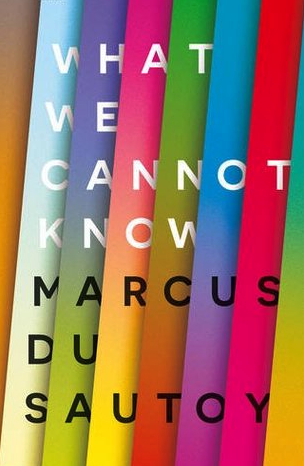
Can everything be known if we just experiment and think enough? This book convinces you that there are always things that are beyond knowledge, and goes on a tour exploring such topics in a really engaging and fun way.
In 200 BC Chinese mathematicians depicted their numbers using red sticks; but if they represented debts, they used black sticks. This is the origin of the term going into the red, although somewhere along the line the colours got swapped.
It also contains a bunch of satisfying tidbits like these.
We each have a box with something inside. We all name the thing inside ‘a beetle’, but we aren’t allowed to look in anyone else’s box, only our own. So it is quite possible that everyone has something different in the box, or that the thing inside is constantly changing, or even that there is nothing in the box.
How we can't really know for sure how others experience consciousness, or if they actually have it at all.
This state of matter already has a name proposed for it: perceptronium, which is defined as the most general substance that feels subjectively self-aware.
Such a fun bizarre idea: consciousness not being an emergent thing generated by brains, but just a basic property of the universe.
The religious physicist John Polkinghorne offers this as a story for the possibility of life after death: ‘Though this pattern is dissolved at death, it seems perfectly rational to believe that it will be remembered by God and reconstituted in a divine act of resurrection.’
Just a pretty brilliant trick for combining religious beliefs with science.
I wake up with this feeling that life is mysterious and a miracle. I still haven’t lost that feeling.
I wake up with this feeling of being groggy and tired, but I tend to agree with him by the time I've had my morning shower and coffee.
If physical phenomena are a result of mathematics, it should not be surprising that we keep finding mathematical explanations at the heart of the universe we inhabit.
Everything could be just math? I don't know what to make of this, but it gave me a nice zen koanish pause.
Perhaps mathematics is the god everyone is chasing. If I replace the word ‘God’ with the word ‘mathematics’ in Aquinas’s attempt at a definition, I think it works quite well: ‘Mathematics is to be thought of as existing outside the domain of existents, as a cause from which comes everything that exists in different forms.’
An elaboration.
Angel: How to Invest in Technology Startups
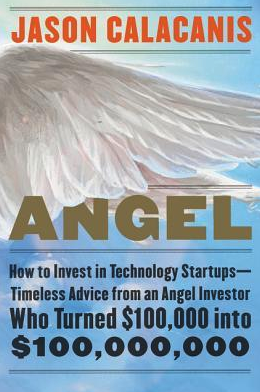
Never let your team experience the same highs and lows you’re feeling because the odds are they aren’t built to handle these kinds of ups and downs like you are.
Just a justification for keeping your employees in the dark, or brilliant advice?
I compare running startups or angel investing in them to being thrown into a large, pitch-black gymnasium with one light switch. You fumble around in the dark, having no idea what you’re doing, until you find a tiny switch, flick it up, and all is revealed.
Another neat way of describing what finding traction for something feels like, except this time from the point of view of someone involved not just in the search inside a single startup, but trying to do it at the scale of picking the winners out of multiple startups.
Flowers For Algernon
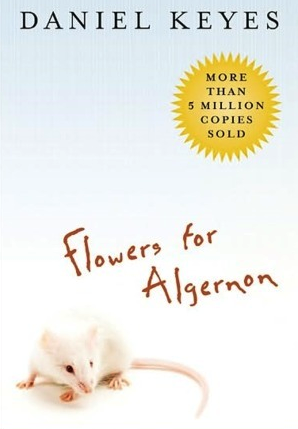
Brilliant piece of fiction about someone who gets an intelligence boost and starts to have new, but often painful and devastating insights about his life.
There is no greater joy than the burst of solution to a problem.
I think most programmers can relate!
Thanks for reading
Also, I lied. This was only half of the cool quotes I found so far in 2020, but the list was getting so long that I decided to cut it here. Later.
